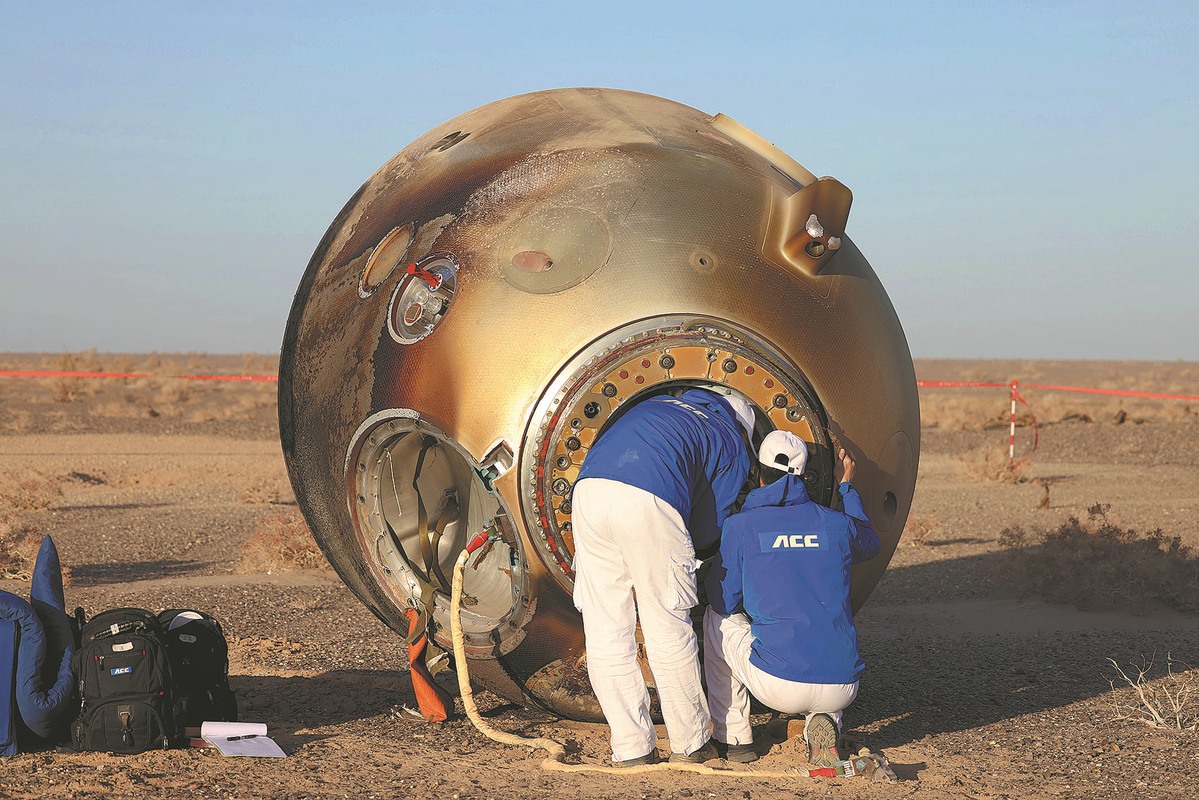Private players make their mark with space missions
More Chinese companies embark on satellite and rocket ventures


Zhu Zhengxian, chief technology officer at GalaxySpace, said the solar wing is extremely thin — each layer is only about 1 mm thick — and when the wing is folded inside the rocket before launch, it is only 5 centimeters thick.
"When fully unfolded in space, the array is about nine meters long and more than 2.5 meters wide. It is characterized by its small folded size, light weight and modular design," he said.
Deployment of the satellite also marked the first in-orbit verification of China's multisatellite stack deployment method, which is used when a rocket is required to put a number of plate-shaped satellites into orbit.
"This method will play a major role in the rapid deployment of multiple communication satellites in low orbit," Zhu said.
Last year, Ellipspace, another private satellite maker based in Beijing, launched four remote-sensing satellites in its Starpool 1 network, marking the start of its ambitious plan to establish a large space-based system consisting of more than 100 satellites.
Remote-sensing satellites are tasked with detecting and monitoring the physical characteristics of objects on land or at sea by measuring the targets' reflected and emitted radiation.
Di Fengping, president of Ellipspace, said the company plans to use the network to obtain data for users in businesses such as oil and electricity infrastructure patrol work, protection of animals and nature reserves, agricultural insurance, emergency response, disaster relief, and marine infrastructure maintenance. The network is due to be completed by 2027.























